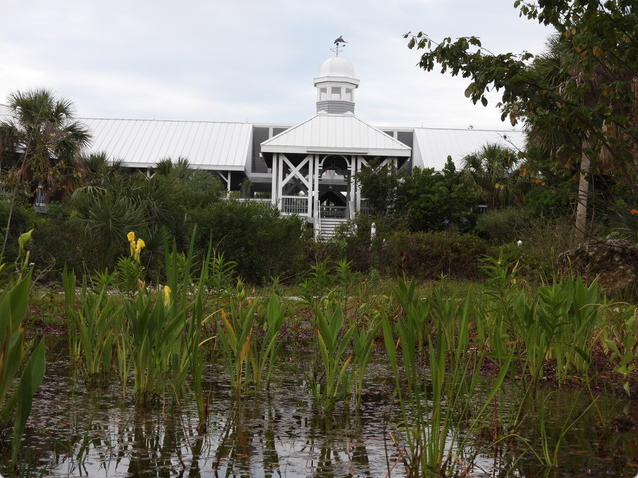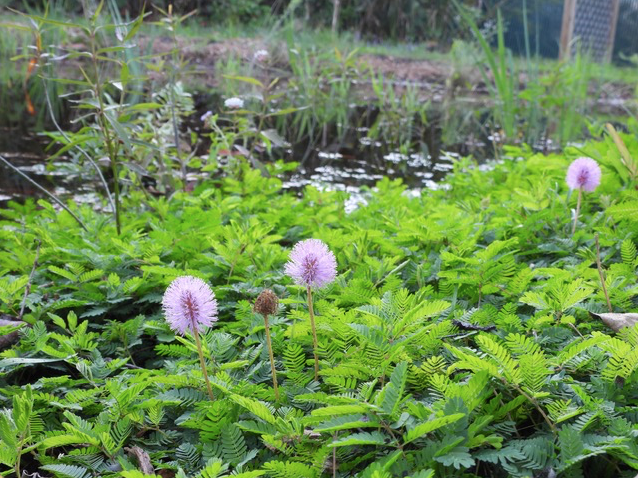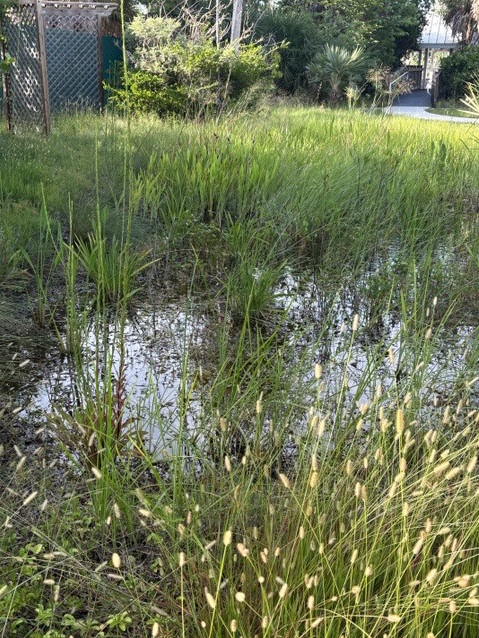Master Gardener volunteers to offer program
UF/IFAS Lee County Extension Master Gardener volunteers will host a free “Rain Gardens: Nature’s Filter for Barrier Islands, Seminar and Garden Tour” class on Nov. 1 from 10 a.m. to noon at the Sanibel Public Library, at 770 Dunlop Road, Sanibel.
The program will help residents understand the benefits and simplicity of creating a rain garden. It will be followed by an optional guided walk to the recently planted rain gardens at the Sanibel City Hall.
Master Gardener volunteer Mariana Pardo explained that the project represents a significant step in the city’s ongoing commitment to sustainable landscaping and environmental protection. The gardens, a collaborative effort between the University of Florida’s Institute of Food and Agricultural Sciences (UF/IFAS) Master Gardener volunteers and the city, are both beautiful and serve an ecological purpose.
She reported that a rain garden is a shallow, vegetated depression designed to capture, hold and filter stormwater runoff from hard surfaces, like roofs and driveways. The water is temporarily held in the garden, allowing it to seep into the ground rather than rushing into storm drains and local waterways.
“This process is especially critical for barrier islands like Sanibel,” Pardo shared. “In a coastal environment, uncontrolled stormwater runoff carries pollutants, such as fertilizers, pesticides and other debris, directly into fragile ecosystems, like estuaries and the Gulf. This pollution can harm marine life, contribute to harmful algal blooms and degrade water quality.”
She reported that rain gardens act as natural filters. Deep-rooted native plants absorb and break down pollutants before they can reach waterways. By collecting water, rain gardens reduce the risk of flooding, while allowing water to percolate and recharge groundwater. The native oases also provide essential habitat for local wildlife, including pollinators, birds and beneficial insects.
Registration is required for the class.
To register or for more information, visit https://www.eventbrite.com/e/1734664079959?aff=oddtdtcreator.




